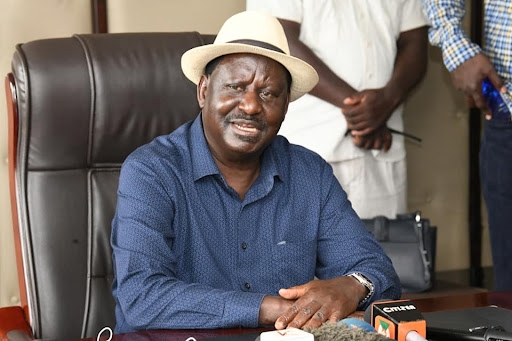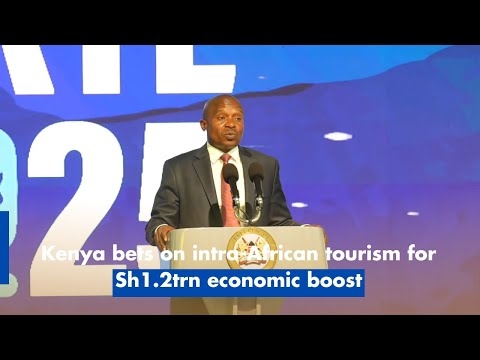KATRIN SAKS is the director of the Baltic Film Media, Arts and Communications School in Tallinn University, Estonia. She served in the Estonia Cabinet as Minister of Population and Ethnic Affairs. She was interviewed by WYCLIFFE MUGA, Weekend Star Editor
I know from our meetings in Tallinn that you were previously an elected politician before you were asked to head the Baltic Film and Media School. Why did you make that change?
I love moving pictures! My grandfather owned a cinema in the 1920s. Unfortunately, only a money box is left of it.
My first job was in the Estonian Television; it is as old as I am. I may also say that I grew up living next to the Estonian Television building. When I was a student, I started working as a reporter in TV and when I finished working there 18 years later, I was a programme director and board member. I also had connections with TV, years after when I was a politician, sitting on the supervisory board of the Estonian TV or working in parliament, in the culture committee.
It is true that when I was a politician, I had a lot more tasks to do. Being Minister of Population and Ethnic Affairs in Estonia, I had to deal with demographic issues and being a member of the European Parliament I was engaged in foreign policy and the internal market issues of the EU. But I still liked to write different texts and a couple of books were made of them. Part of me was a journalist.
When I applied for the post at the university, I hoped I could use both my knowledge and experience, but also try something new. And so it has been. I sometimes joke that I finally decided to become a normal decent person. Journalists are feared, politicians hated, but academic people are respected.
Traditionally young Kenyans going abroad have focused on the UK, the USA, and more recently Australia. To Kenyans, Estonia is a remote and exotic country and so Tallinn University and the Baltic Film, Media, Arts and Communication School would have to offer something really special to draw Kenyan students away from these traditional destinations. What would you say that special thing is?
We offer practical international studies in a well-equipped modern building, in a good and inspiring environment. Starting from autumn 2015, we have joint masters’ studies in filmmaking with the Edinburgh Film School and Lisbon Lusofonia University in six main areas of filmmaking. The students are able to benefit from three different schools over three years. Also, this is the only syllabus that has financial support from the European Commission and it is unique in the sense that it is targeted at the youth worldwide. There are more grant opportunities in these studies too. See
And last but not least, studying in Estonia is less expensive than studying in the USA or Great Britain. The tuition fee is smaller and the cost of living is generally a lot cheaper.
Tallinn, our capital, is also rich in culture and this adds to the student life. The school itself is located in the city centre, but it only takes ten minutes to walk to the seashore and to a huge park at the sea. It is a beautiful and safe environment. Safety in Estonia is often stressed by the foreigners studying here. From the harbour close to the university, ferries take you to Helsinki, Stockholm or St. Petersburg.
The Kenyan entertainment industry is at a crossroads right now, with the government determined to create local capacity in film and radio production by legislating for a minimum of 40% local content for all radio and TV stations. Out of this demand for more local content, it is expected that more Kenyans are going to be able to find jobs in radio and TV now. How would having a Master’s degree from BFM give a Kenyan graduate an advantage?
Want another reason to come here to study? It’s the chance to experience how a small country has managed to maintain and develop a culture in their own language in all of its forms in the contemporary globalizing world. This has been accomplished in spite of the fact that independently, we have had the chance to decide on our own affairs only for a short time. The statistics say that regardless of the fact that we can watch tens of super good TV channels or grandiose Hollywood films in cinemas, our home-made productions attract most of the audience, be it our own Estonian films or TV series. By the way, the obligatory volume of own production and European-produced programmes is fixed by law, it must be over a half of the total volume.
Beyond TV and filmmaking, what skills would your graduates acquire?
Our approach to teaching digital games is also innovative. We started this project in cooperation with four institutes: IT people, education researchers and psychologists and us BFM. We are trying to train those who are able to create games and digital teaching materials for modern schooling. We have teachers on board and a direct link to the schoolchildren.
A new challenge facing us is obligatory interdisciplinary projects introduced into the curriculum. As a movie is interdisciplinary by its very nature, we now intend to provide an opportunity to all our students to cooperate with the students of other specialties. I believe there will be a lot of new ideas as well as development of the skills to do teamwork, which is extremely necessary nowadays.
Estonia is famous as a highly networked country, with almost 100% internet penetration. And the global media trend is more and more on online media products, very different from the newspapers that I have worked in, for example. What does BFM do to prepare its graduates for a world of digital media?
Besides the traditional film and media studies, we started quite a unique cross-media curriculum
five years ago. See .
It is based on the principle that when telling stories, one should try using and combining different platforms thus increasing their impact. As an example, there was a successful master’s project which all started from a very popular book among the youth called The zero point, written by our alumnus. This was the basis for a film, a TV series that was developed by the young people themselves through social media and potential games. This project has gained international publicity. See
Estonia is a very small country: Why was it necessary to have a Minister of Population and Ethnic Affairs in your country?
This was a temporary position, today you do not find any such minister in the government. The duties of the minister were distributed among other cabinet ministers. But at that time when I was a government member, it resulted from the demographic situation in the country.
The birth rate fell sharply in the first half of the 1990s, and it was felt to be a serious threat to the country with only 1.3 million people. One of my tasks was to develop the state family policy.
Another task proceeded from the fact that due to the Soviet politics Estonia became a multinational country during the Soviet occupation. Approximately 1/3 of the population could not speak the state language and a lot of people were mentally connected to the neighbouring country Russia rather than to the country they lived in – Estonia. For example, only 3% of the inhabitants of the border city Narva are Estonians, and a little more than a half of the people living in the capital Tallinn. When independence was re-established in Estonia, there was some hope that many people would leave the country because they did not support the independence of Estonia. By the second half of the 1990s it was clear that the majority would stay. The living standard in Estonia was higher; later on the freedom of movement thanks to our joining the European Union was of great importance to those living here.
And what did your day-to-day work involve, when you served in the Cabinet?
I was involved in the creating and developing of the state integration programme at the end of the 1990s. This whole process has been rather complicated with its success stories and setbacks. Today, however, the younger generation of Russian-speaking people can speak Estonian and most of them are definitely loyal to our state. For instance, in our school there are several Russians employed who can freely use at least three languages, and they are real patriots. We also have a lot of Russian-speaking students who prefer the tuition in English to the tuition in Estonian. It has become quite common that a Russian student and an Estonian student communicate in English.
It could also be pointed out that the party I belong to – the Estonian Social Democrats –, which is the third party in Estonia in the membership numbers, and most of the members are Estonians, is headed by a young man Jevgeni Ossinovski, born into a Russian family. He is also the Minister of Health and Labour in Estonia. It is certain that ten years ago this could have been unthinkable. But integration takes a lot of time and in order to have change, the change of generations is needed.












